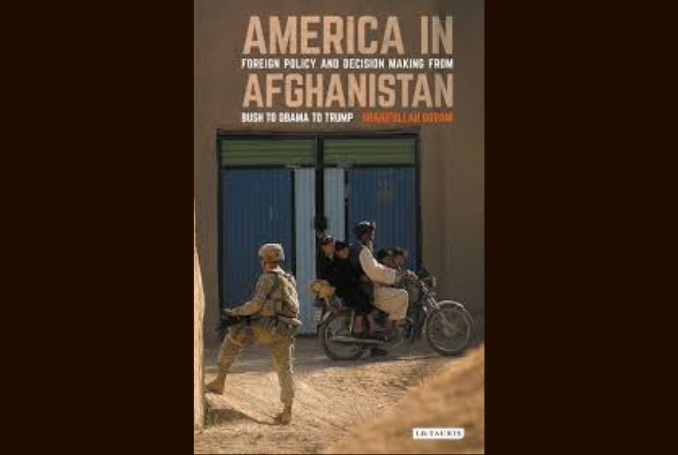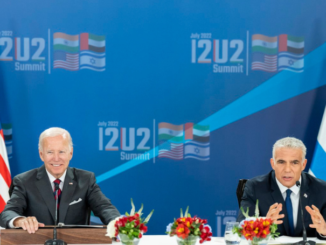
By Jim Miles
(America in Afghanistan: Foreign Policy Making From Bush to Obama to Trump. Sharifullah Dorani. I. B. Taurus – Bloomsbury Publishing, Plc. London/NewYork, 2019.)
Sharifulla Dorani’s work, America in Afghanistan, provides an interesting overview of U.S. political history throughout the course of the Afghanistan war, the original part of the ‘global war on terror’. The ideas are presented in sections representative of each of the presidents involved, and then further subdivided into smaller phases of initiation, implementation, and evaluation/withdrawal. Pakistan is highlighted as a significant factor, along with India.
The initiation originates from the 9/11 events where President Bush is perceived to be a strong leader, making strong decisions characterized by his “You are with us or against us” attitude. Along with this, Bush’s relationship with Donald Rumsfeld is highlighted. It is recognized that the CIA was already present in Afghanistan – and indeed preceded events by several decades as they attempted and succeeded in dragging the Soviet Union into Afghanistan in 1979.
The Bush war cabinet presents the reality behind Bush’s determination to fight in Afghanistan. Supported by many Reagan era neocons – Rumsfeld, Wolfowitz, Feith, Perle, Cheney, Woolsey, Abrams, et al – the Afghan war effort was sidelined by the turn to the Iraq war.
President Obama is seen as a negotiator as opposed to Bush’s perception as a decider. He accepted points of view from two factions, those opposed to more intervention and wanting a drawdown, and the military side speaking for an insurgency. A middle path was taken, allowing for a smaller surge but with some definition of an end date.
President Trump is presented in all his helter-skelter glory, not really understanding the situation and being subject to personal whims and fancies. Ultimately the Pentagon was given control of the situation providing a slight increase in combat personnel and a large increase in aerial attacks.
Pakistan is recognized as playing a double role. Having been used by the U.S. to instigate actions against Soviet forces by supporting the mujahideen, the many warlords were pushed back by the Taliban. Throughout the Afghan-U.S. war, the warlords continued with their efforts at control inside Afghanistan, while the Taliban and nascent al-Qaeda fighters fought U.S. and Afghan-trained forces inside Afghanistan while receiving material support and area protection from Pakistan. Pakistan is seen as “meddling” and the “mother of all problems.”
While the historical text provides a good political overview from the U.S. perspective, the conclusion has some arguable statements.
The first concerns the idea of the U.S. being involved in Afghanistan with no “ulterior motive.” For all the information available concerning the role of the U.S. military and the CIA/NSA in promoting U.S. interests globally for the protection of corporate interests and the containment of China and Russia – the “Grand Chessboard” strategy of Zbigniew Brzezinski – there are clearly ulterior motives to be in Afghanistan. Perhaps not at the outset when Russia was seen to be weak and declining, but certainly over the past decade with Russia displaying its resurgence as a regional and global player.
I was also taken aback by the statement “never in the history of Afghanistan has so much been achieved during 16 and a half years.” No evidence is provided for this, and indeed the dedication is to “the ordinary Afghan: who has received nothing from the four-decade-long war but an extraordinary amount of suffering….”
For an introductory read to the politics of the Afghan war, America in Afghanistan provides a clear indicator of the various arguments and positions from the U.S. political scene.
– Jim Miles is a Canadian educator and a regular contributor/columnist of opinion pieces and book reviews to Palestine Chronicles. His interest in this topic stems originally from an environmental perspective, which encompasses the militarization and economic subjugation of the global community and its commodification by corporate governance and by the American government.

– Jim Miles is a Canadian educator and a regular contributor/columnist of opinion pieces and book reviews to Palestine Chronicles. His interest in this topic stems originally from an environmental perspective, which encompasses the militarization and economic subjugation of the global community and its commodification by corporate governance and by the American government.







